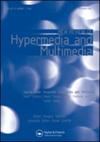Gratis&Libre:维基百科在自由开放的历史制作和传播中的作用
IF 0.8
4区 计算机科学
Q3 COMPUTER SCIENCE, INFORMATION SYSTEMS
引用次数: 0
摘要
摘要维基百科从定义上来说是一部百科全书,它所承诺的普遍范围和可用性是追求全球信息访问的理想。文学生产的历史同样也是审查、知识压制、保存和物质流通的历史。虽然广泛访问的在线资源似乎已经超越了这些问题,但它们实际上是自由和限制之间复杂平衡的一部分。因此,将维基百科视为一个网站、一个图书馆、一本词典、一个档案馆和一本书之外的其他术语是有用的。有鉴于此,我们看到维基百科在知识传播和保存史上有许多先例,如亚历山大图书馆、牛津英语词典或《圣经》等。维基百科在任何一个领域都与以前不同,但在许多领域的不同方面却非常相似。本文通过研究历史上通过版权限制知识的方法,讨论了“自由”的概念如何与知识的生产和传播联系在一起;审查制度摧毁价格和语言。维基百科是一长串自由知识理想捍卫者中的最新一个。本文章由计算机程序翻译,如有差异,请以英文原文为准。
Gratis & Libre: Wikipedia’s role in free and open history production and dissemination
ABSTRACT Wikipedia is by definition an encyclopedia, and the universal scope and availability it promises are ideals-in the pursuit of worldwide access to information. The history of literary production is equally the history of censorship, knowledge suppression, preservation, and material circulation. While widely accessed online sources might appear to have moved beyond these issues, they are in fact part of this complex balance between freedom and restriction. Therefore, it is useful to consider Wikipedia in terms other than as a website-as a library, as a dictionary, as an archive, as a book. In this light, we see that Wikipedia has many precedents in the history of knowledge dissemination and preservation, precedents as diverse as the Library of Alexandria, the Oxford English Dictionary or the Bible. Wikipedia is so different from what has gone before in any one field but so similar to what has happened in different aspects of many fields. This paper discusses how the idea of “free” is related to the production and dissemination of knowledge by looking at methods by which knowledge has historically been curtailed-through copyright; censorship; destruction; price; and language. Wikipedia is the latest in a long line of defenders of the ideal of free knowledge.
求助全文
通过发布文献求助,成功后即可免费获取论文全文。
去求助
来源期刊

New Review of Hypermedia and Multimedia
COMPUTER SCIENCE, INFORMATION SYSTEMS-
CiteScore
3.40
自引率
0.00%
发文量
4
审稿时长
>12 weeks
期刊介绍:
The New Review of Hypermedia and Multimedia (NRHM) is an interdisciplinary journal providing a focus for research covering practical and theoretical developments in hypermedia, hypertext, and interactive multimedia.
 求助内容:
求助内容: 应助结果提醒方式:
应助结果提醒方式:


